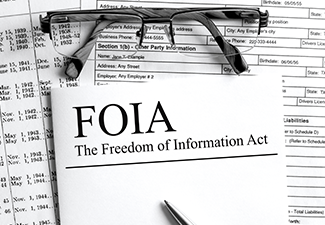Privacy Act vs FOIA
Aug. 29, 2023
 There are two fundamental laws in place to regulate your right to access information: the Freedom of Information Act (FOIA) and the Privacy Act. While these two acts may seem similar, they serve different purposes.
There are two fundamental laws in place to regulate your right to access information: the Freedom of Information Act (FOIA) and the Privacy Act. While these two acts may seem similar, they serve different purposes.
It is imperative that you understand the key differences between the Privacy Act and FOIA, especially if you feel that your right to privacy has been violated. If this sounds like your situation, I can help. As a FOIA attorney, I assist people who believe their rights pretraining to privacy, public policy, or government transparency have been violated.
Michael Kuzma Attorney at Law can evaluate your specific situation and explain whether you have grounds to access records or file a claim against a government agency that violated your rights. I am based in Buffalo, New York, but serve clients throughout the United States.
Understanding the Freedom of Information Act (FOIA)
FOIA is a federal statute that grants the right to make requests to access federal agency records. However, the right to make such requests is subject to certain exemptions and exclusions outlined in the law. While the FOIA protections apply to federal agencies, they do not apply to records maintained by:
The courts
Congress
State/local government agencies
Each state has its own public access laws, which is why it is essential to understand the laws in your jurisdiction before initiating legal action when you believe your right to the protection of confidential information has been violated.
The process of making a FOIA request for federal agency records includes the following steps:
Verify that there is no other method to obtain the records in question.
Identify the appropriate agency and the representative (each agency has an officer responsible for processing FOIA requests).
Learn more about the agency’s regulations and fees pertaining to making a FOIA request.
Compile your request (this step may require the assistance of a skilled FOIA attorney to ensure that your request is filed properly).
Wait for the agency’s response (under FOIA, the agency must either grant or deny your request within 20 business days of receiving the request).
The main purpose of FOIA is to make all records collected and maintained by the federal government available to the public unless the release of such records would cause specific and serious harm. To prevent the potential harm from the release of such records, FOIA specifies nine exemptions and three exclusions, including classified information related to national defense and foreign relations, information prohibited from disclosure by federal law, and rules and practices adopted by internal agency personnel, among others.
Understanding the Privacy Act
The Privacy Act of 1974 is a federal statute that governs the collection, maintenance, and use of records maintained by the government on individuals. The main purpose of the law is to prohibit the disclosure of certain records about U.S. citizens and individuals lawfully admitted to the country for permanent residence and protect individuals against unwarranted invasions of their privacy due to any of the following:
The collection of personal information
The maintenance of personal information
The use of personal information
The disclosure of personal information
The Privacy Act also provides other protections to individuals, including the right to request their records (unless the exemptions apply) and the right to request changes to their records when such records are not complete, accurate, timely, or relevant.
Comparing FOIA and the Privacy Act
While the Privacy Act and FOIA may share some similarities, there are several key differences between the two. First and foremost, FOIA allows the public to access government records, while the Privacy Act allows individuals to access records about themselves and protects their personally identifiable information from being released to the public.
Some portions of FOIA and the Privacy Act do overlap, but not entirely. For example, both laws provide the public with a means to access government records pertaining to themselves. However, the Acts have a different definition for the term “record”:
Under the Privacy Act, a record is any identifiable set of information agencies may collect and maintain about a person.
Under FOIA, a record is anything considered an “agency record.” A record is an agency record if it is (1) obtained or created by the agency and (2) under agency control at the time it receives the FOIA request.
The Privacy Act and FOIA are also different in regard to who has the right to access files. Under FOIA, many categories of people have a right to make a request for records, including U.S. citizens, non-citizens, lawful permanent residents, and organizations. The Privacy Act, on the other hand, does not allow you to access records unless you are either a U.S. citizen or a lawful permanent resident.
Legal Guidance You Can Trust
Michael Kuzma Attorney at Law stands up for the rights of individuals who experience harm due to violations of their rights by helping them access records under both FOIA and the Privacy Act and get justice. I can provide you with the guidance you need and explain the legal options available to you to exercise your right to access the information you need. Get in touch today to schedule a free consultation.
